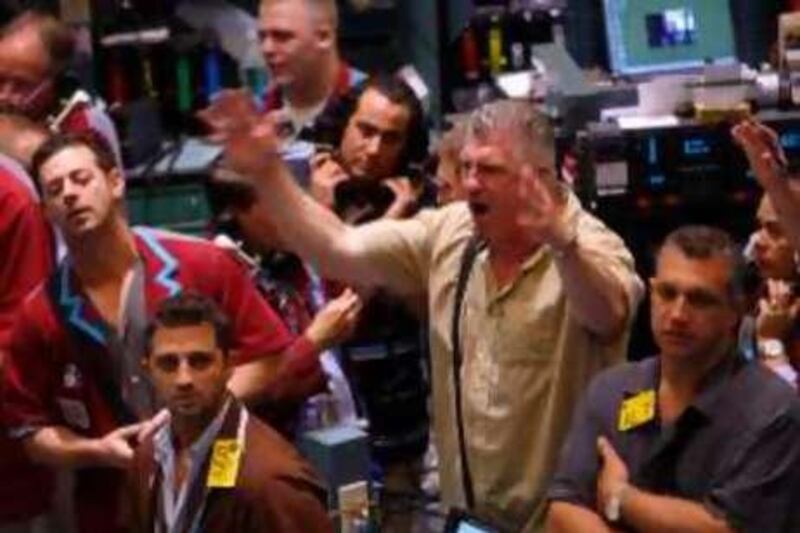Fears of the global economy tumbling into a major recession deepened yesterday after a bleak 24 hours in which stock markets fell and the price of oil continued to rise.
In New York and London, share prices officially slid into bear-market territory. The Dow Jones Industrial Average, a key measure of US economic health, declined to 20 per cent below its previous peak, while Japanese stocks hit a low not seen for more than 50 years. Among the victims was the once-mighty General Motors, left staring at bankruptcy after shares hit their lowest point since 1954. At the same time oil surged to a new high yesterday, reaching more than $146 barrel and adding to the inflationary pressures on goods and services. In Frankfurt, the European Central Bank became the first bank from the G7 leading industrialised nations to raise interest rates since the credit crunch exploded last August. The quarter per cent rise in its benchmark interest rate is intended to curb inflation, but risks putting more pressure on the weakening dollar and in turn making oil even more attractive to speculators. Lurking in the background is the spectre of "stagflation", a lethal combination of stagnating economic growth and inflation that can lead to mass unemployment and years of recession. The monthly job figures published in the US yesterday showed 62,000 Americans were thrown out of work in June. Although the figures were only marginally worse than feared, the six-month period of rising unemployment is the worst for six years. Leading analysts increasingly fear that the point of no return for a worldwide depression already may have been passed. "This has been a summer of thunder storms that have been building up for some time," said Justin Urquhart Stewart, investment director at Seven Investment Management in London. Only now are people beginning to realise how dark this particular storm is looking, but it's been a long time coming." While oil-exporting countries such as the UAE and Saudi Arabia are in part insulated from the global turmoil by the extra income from rising oil prices, their economies must also grapple with the inflationary effects of the cost of a barrel of oil closing on $150. With family budgets hit by rising food prices, the pressure for higher wages also threatens to increase the cost of construction and economic development. Inflation in all Gulf nations except Bahrain is now in double digits and is estimated to have risen to 11.1 per cent in the UAE last year. Simon Williams, HSBC's chief economist for Gulf markets, warned: "The value of our currency is being drawn down because of weakness of the dollar and we are suffering from inflation because of rising global commodity prices and monetary policy ties to the US." All GCC currencies except Kuwait's are pegged to the US dollar, which has stoked inflation as the US Federal Reserve lowered interest rates in recent months. But the greatest long-term danger for GCC economies, said Mr Williams, is if the current crisis in the US and western Europe feeds through into Asian markets and translates into a slowdown in demand for oil. Even then, though, oil revenues would remain high. "We're not isolated but we are certainly well insulated from the troubles affecting the outside world", he said. jlangton@thenational.ae afitch@thenational.ae






